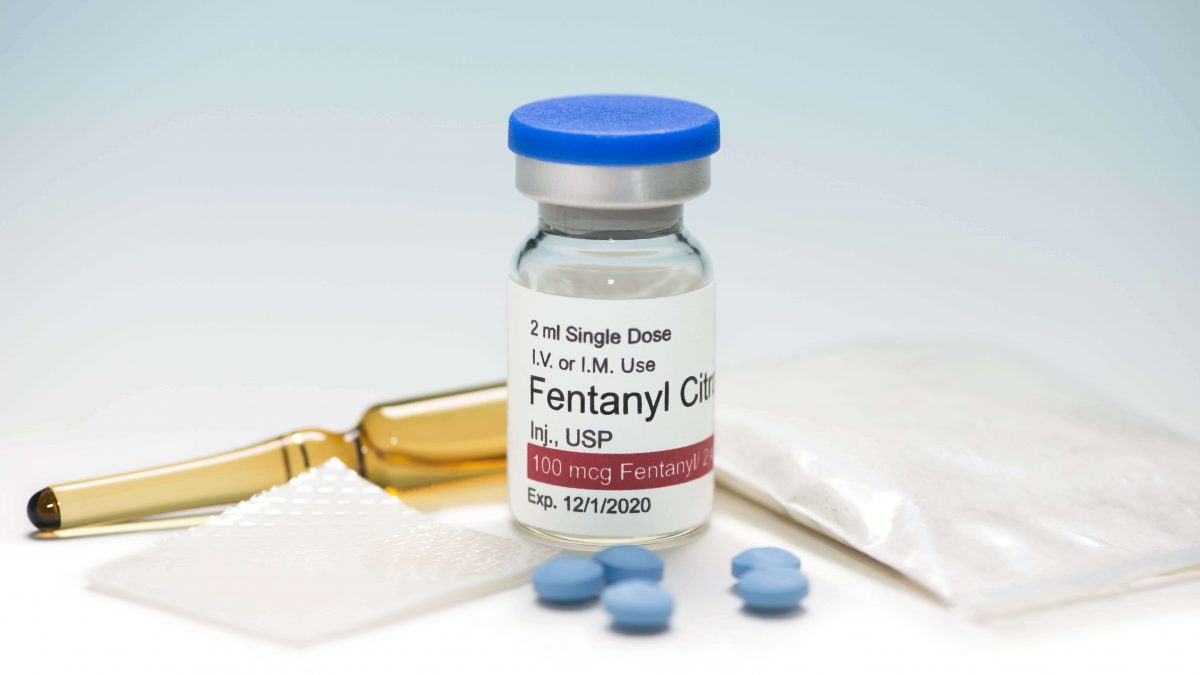The Deadly Truth About Fentanyl

The Deadly Truth About Fentanyl: What You Need to Know
Fentanyl, the synthetic opioid that has been making headlines in recent years, is a drug that's deadlier than heroin and more potent than morphine. Its presence in our society is growing at an alarming rate, leaving behind a trail of deaths and destruction. In this blog post, we'll take a deep dive into fentanyl - what it is, how it works, and most importantly, the deadly truth about its effects on individuals who come into contact with it. Whether you're struggling with addiction or just curious about this dangerous substance - this article will give you all the information you need to know about fentanyl.
Fentanyl and Its Impact on the Opioid Crisis
Fentanyl is a powerful synthetic opioid that is similar to morphine but is 50 to 100 times more potent. It is a prescription drug that is used to treat pain, but it is also often sold illegally. Fentanyl was involved in almost 32,000 deaths in the United States in 2018, and its involvement in overdose deaths has been increasing in recent years.
The rise in fentanyl overdoses is largely due to the fact that it is being mixed with other drugs, including heroin and cocaine. This increases the risk of accidental overdoses, as people may not be aware that they are taking fentanyl. Fentanyl can also be deadly if it is inhaled or absorbed through the skin.
If you or someone you know is using opioids, it is important to be aware of the risks of fentanyl and take steps to avoid it. If you think you or someone you know may have overdosed on opioids, call 911 immediately.
How Deadly is Fentanyl?
According to the National Institute on Drug Abuse, fentanyl is a synthetic opioid that is 50 to 100 times more potent than morphine. It is typically prescribed to treat pain associated with cancer or other chronic medical conditions. However, because it is so potent, it is also highly addictive and has a high potential for abuse.
Fentanyl has been involved in a growing number of overdose deaths in recent years. In fact, according to the Centers for Disease Control and Prevention (CDC), fentanyl was involved in more than 18,000 overdose deaths in the United States in 2016 alone. This is nearly double the number of overdose deaths involving fentanyl in 2015.
What makes fentanyl so dangerous is its potency. A very small amount of the drug can be fatal. For example, just 2 milligrams of fentanyl can be deadly for an adult who weighs 160 pounds. That’s equivalent to about three grains of salt.
Another factor that makes fentanyl so dangerous is that it can be easily disguised and added to other drugs without the user’s knowledge. This increases the risk of accidental overdoses, as people may take a drug thinking it contains a lower dose of opioids when it actually contains a much higher dose of fentanyl.
If you or someone you know is struggling with addiction to opioids, please get help immediately. There are many resources available to those who need assistance, including detoxification and rehabilitation programs, 12-step programs like Narcotics Anonymous, and counseling services. Call our intake specialist right now at (610) 314-6747 to begin recovery!
The Dangers of Fentanyl Addiction
Fentanyl is a powerful synthetic opioid that is up to 100 times more potent than morphine. It is typically prescribed to treat patients with severe pain, such as cancer patients or those who have undergone surgery. However, because of its high potency, fentanyl also carries a high risk for abuse and addiction.
When misused, fentanyl can lead to a number of dangerous consequences, including overdose and death. In fact, fentanyl was involved in nearly half of all opioid-related deaths in the United States in 2016. If you or someone you know is struggling with an addiction to fentanyl, it's important to seek professional help as soon as possible.
Understanding the Risk Factors for Fentanyl Addiction
There are many risk factors for developing an addiction to fentanyl. Some of these include:
- Having a history of addiction or substance abuse.
- Having mental health disorders such as anxiety, depression, or bipolar disorder.
- Using fentanyl for a long period of time.
- Taking high doses of fentanyl.
- Taking fentanyl through different routes of administration such as injecting it or smoking it.
Treatment Options for Fentanyl Addiction
Fentanyl is a powerful synthetic opioid that is similar to morphine but is 50 to 100 times more potent. It is a Schedule II prescription drug, which means it has a high potential for abuse and addiction. Fentanyl is typically used to treat severe pain, such as that associated with cancer or surgery. However, it is also often abused by people who want to get high.
Fentanyl addiction is a serious problem that requires professional treatment. There are many different treatment options available, and the best one for you will depend on your individual situation. Some common treatment options for fentanyl addiction include:
-Inpatient or outpatient drug rehab: This can help you detox from fentanyl and learn how to live a sober life.
-Medication-assisted treatment: This involves taking medications like buprenorphine or methadone to help reduce cravings and withdrawal symptoms.
-Counseling and therapy: This can help you deal with the emotional and psychological aspects of addiction.
-Support groups: This can provide you with peer support and accountability as you recover from addiction.
Prevention Strategies
In order to prevent an opioid crisis, there are a few strategies that can be implemented. Firstly, it is important to increase awareness of the dangers of opioids and fentanyl specifically. This can be done through public education campaigns and by training healthcare professionals on how to properly prescribe opioids. Secondly, stricter regulations need to be put in place for both the prescribing and dispensing of opioids. Finally, better access to treatment and recovery services is essential for those who are already addicted to opioids.
By increasing awareness of the dangers of opioids and fentanyl, we can hope to prevent more people from becoming addicted in the first place. Public education campaigns can help to spread the word about the risks involved with taking these drugs, and training healthcare professionals on proper prescribing practices will ensure that patients are not being over-prescribed opioids. Stricter regulations around dispensing opioids will also help to prevent them from falling into the wrong hands.
For those who are already addicted to opioids, better access to treatment and recovery services is essential. These individuals need help in order to break the cycle of addiction, and without adequate resources they may simply continue down a dangerous path. By providing more access to treatment options, we can hope to reduce the number of opioid overdoses and save lives.
Fentanyl is a powerful opioid drug with dangerous effects. It can be found in many forms, including pills and patches, and has been linked to numerous overdose deaths. While fentanyl can be used effectively for medical purposes, it should always be taken under the supervision of a doctor or healthcare professional. Furthermore, those who suffer from substance use disorder should seek out professional help before attempting to quit using fentanyl on their own. With knowledge and awareness about the dangers of this drug, we can work together to reduce its destructive consequences within our society. Call today to learn more (855) 712-9679


